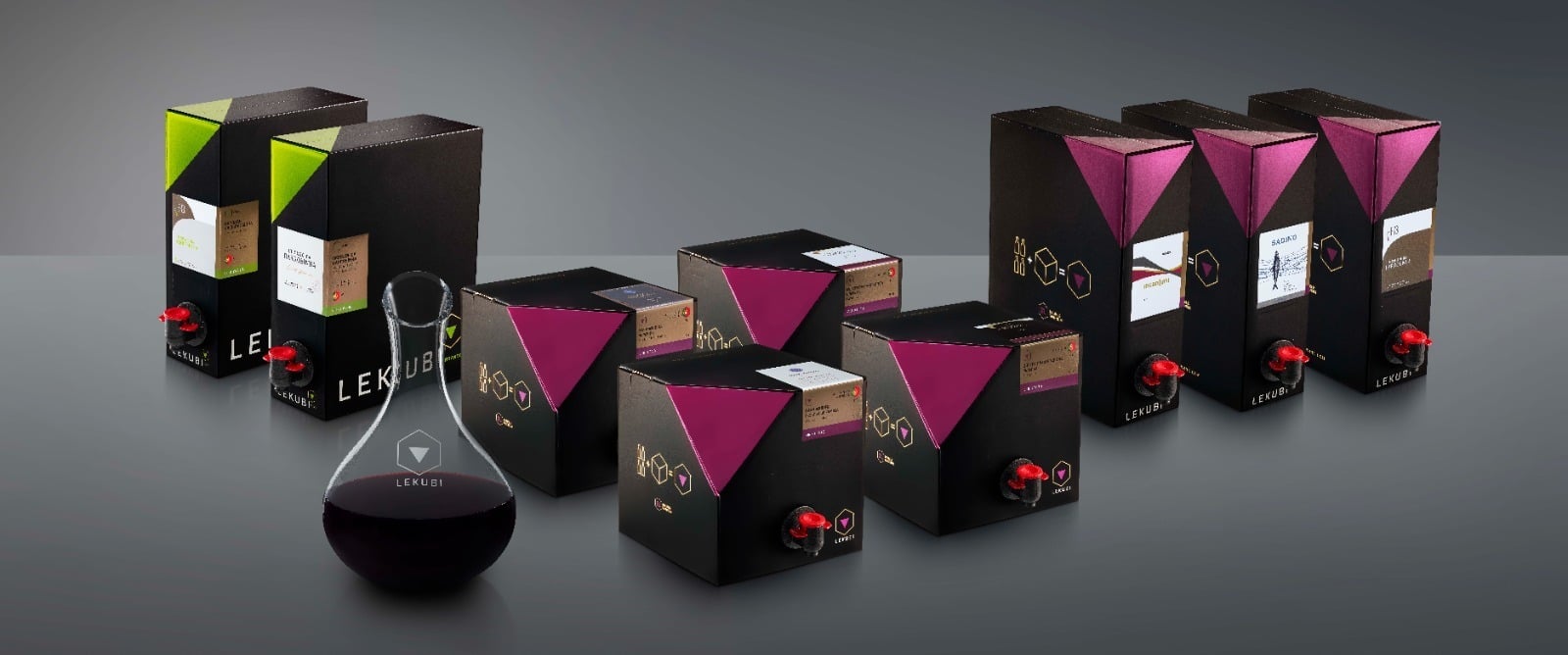17 de November, 2022

The storage of wines in pouches and cartons, known as bag in box, may not be new. Its popularity and respect among experts, on the other hand, are more recent. In fact, the technique was created in the 1950s, for the storage of liquids, but soon came into use by wine producers, as it extended the durability of the products, even after they were opened.
Over time, this type of packaging has become an alternative that is not only more sustainable, but also more practical and intelligent. Consumers realized this and so did the market. Today, important producers, even the most traditional ones, already sell their wines also in a bag in box version. Little by little, wine lovers, even the most demanding, are beginning to get rid of their prejudices. For those who consume slowly, this type of packaging only has advantages!
In this article we will explain what the bag in box is, its origin, main qualities and Portuguese wine brands that already work with this format. Finally, we present LEKUBI, a partner company of the Atlantic Bridge and the Atlantic Lovers club.
Read also: Top 10 Portuguese Wines in 2022!

The translation says it all. A bag in box is a package formed by a bag, inside a box for transportation. It also has a spout, which can be a simple lid, a connector or a tap, depending on the product to be transported. In the case of wines, a tap is used in conjunction with the vacuum system. The liquid comes out (and the bag goes “slimming”), without allowing air to enter the bag and oxidize the product, altering its properties and flavor.
Thus, the durability of an opened wine that is stored in this format is much longer than in the traditional glass bottle. Different brands of bag in box use techniques and materials with varying levels of sophistication. Consequently, this durability can also be variable, from 4 weeks to 2 months, depending on the quality of the packaging. Its capacity usually ranges from 3 to 10 liters. There are also boxes with two or more bags and taps: a stimulus to variety.
Realizing your goal of living in Europe or obtaining European citizenship can be simpler than you think. We offer personalized support to make the immigration process more accessible and uncomplicated.
Interestingly, the packaging was created for the transportation of automotive battery fluids. It was soon incorporated by the food industry and had its technology improved, as well as its design. Currently it is used to store different liquids, water, juices, olive oil, ready drinks, among others.
Another important point of the bag in box is sustainability. Did you know that about 29% of the carbon footprint in the wine production chain is concentrated in the manufacture of the glass packaging? The production of the bag-in-box, as well as its transportation and recycling, emit lower rates of CO2 into the atmosphere when compared to glass. Ecologically conscious countries like Sweden, Norway and Denmark were the first to adopt the packaging. Currently, it represents 60% of wine consumption in these countries.
For this reason, there are already efforts, in different countries around the world, to reduce the taxes levied on products sold in bag-in-box to encourage migration to this format.
The durability provided by packaging leads to other issues. One of these is moderation. The consumer is no longer obliged to be in a hurry, or drink the whole bottle because he knows it will “spoil”. And he can afford to do what doctors have been recommending for years: one glass of wine a day.
From the point of view of bar and restaurant owners, this same durability means the possibility of offering a greater variety of options to their customers. Wine sold “by the glass” is a reality in Portugal, where consumption is high. But that doesn’t happen everywhere. Many retailers only sell wines in bottles, especially the more expensive ones, to avoid losses. Have you thought about how this novelty can democratize the access to different types and qualities of wines?
For a long time the wines sold in cardboard packaging have been the target of prejudice. And there are reasons for this. In the past (but not so long ago) the wines in these formats were cheap products and of poor quality. In most cases, they came from regions without much wine tradition and were sold as “table wine”. A category that does not require the identification of the place of origin of the package contents. This scenario has changed dramatically in recent years, and for a few reasons:
Today there are already awards aimed at this specific format. The “Concours International Wine in Box” is one of them. It takes place every year in Toulouse, France. During two days, a jury made up of oenologists and sommeliers blind-tastes more than 500 bag in boxes to elect the best ones.
The interest of the foreign market for wines stored in bag in box made important producers and prestigious winemakers reevaluate the alternative. Today it is already possible to find wines as renowned as Periquita, Altano, Montado, Bipartito, Monte da Ravasqueira, Quinta da Carregosa, among others. More and more the format is occupying the shelves of Portuguese supermarkets. Many other name producers already market part (foreign market) of their production in these formats. Among them: João Portugal Ramos, Casa Ermelinda Freitas, most of the Alentejo cooperatives and the Almeirim cooperative.
While many wine brands seek to adapt and create versions packaged in bag-in-box, there are companies that function as platforms, performing a curatorial process and offering a selection of quality wines to the consumer. LEKUBI* is a platform in this model, which brings to the Brazilian market high standard Portuguese wines produced by important wineries and signed by the most respected winemakers. Elected one of the best bag in box in the world, it has just won a gold medal at the “Concours International Wine in Box”.
In Brazil, the bag in box segment still represents about 1% of sales. LEKUBI arrives in this market with 09 labels of high standard Portuguese wines (07 red, 01 white and 01 rose). These are wines that already exist in the traditional glass bottle model. The bag-in-box design brings a QR Code with videos where the winemakers themselves present their wineries and talk about the characteristics of their wines. “The idea is to make people, at the moment of tasting, be transported to the environment where that wine was produced,” explains Ricardo Braga, one of the founders of KEKUBI. A good way to unite tradition with modernity.
Red Wines
Sadino Red Wine 2020
Incantum
Monte da Ravasqueira Superior
Ravasqueira Family Reserve
Herdade da Barrosinha
Quinta da Carregosa Colheita
Quinta da Carregosa Old Vines
White Wine
Herdade da Barrosinha
Rosé Wine
Herdade da Barrosinha 2020
Bag-in-box wines are here to break paradigms and stay – forever. It is estimated that in the future, only high value wines will be bottled (something starting at 30 euros). The rest will be consumed this way, in a sustainable and uncomplicated way. Ideal for those who consume wine daily and for marketing wines by the glass. With a great cost-benefit and durability, growing in the market is just a matter of time. Not too long!

Author:
Atlantic Bridge